Leandra and Jimena have been best amigas forever. But when Leandra discovers the word transgender, the cost of her struggle to regain her identity may be her Spanish—and Jimena.
Ended
Leandra and her best friend since forever, Jimena, are determined that their friendship is not going to fade when Leandra goes to college. After all, Leandra’s going to be a Spanish major, and their mutual fluency in the language is one of the things that keeps them together. But when Leandra gets there, she meets students who identify as transgender—and quickly figures out that there are words for her growing hatred of everything female about herself, from her body to feminine words in both languages, including Jimena’s pet name querida. This discovery of a new subculture that she may, by no choice of her own, be part of, unseats Leandra, and her struggle to regain her understanding of who she is may cost her Spanish—and Jimena.
Like Leandra, I've spoken Spanish since I was little, and, like Leandra, first found it coming into conflict with nonbinary language during my first semester of college. At first it was just an interesting concept, a nice paradox to explore. Then I did a lot of reading in preparation for writing this book, and I've found a serious lack of well-written fiction about trans characters, particularly nonbinary characters, which has made it even more important to me to see representation. It got personal when I myself started to identify as agender.
The book is not currently divided into chapters, but the plot timeline looks like this:
August 27th, 2016. Jimena and Leandra say goodbye and make plans to skype. Leandra arrives at Haverford College for move-in day and meets roommate Antigony and neighbors Gary and Ryan.
Aug 29th. Leandra speaks to her dean about taking biology at Bryn Mawr College instead.
September 2. First day of classes. Leandra meets Henriette.
Sept. 3. Bio at Bryn Mawr. Leandra meets Ella in class, and goes to lunch with her, thereby meeting the Doublestar crowd, including Whitney, an effeminate gay trans man and Chrys, a genderfluid person. Leandra finds out what transgender means, and promptly goes home and has a panic attack over how familiar the descriptions sound.
Sept. 4. Leandra meets Nadie.
Sept 5. Leandra eats with the Doublestar crowd again and freaks out some more about gender.
Sept. 7. Leandra signs up for Robotics Club and talks to Henriette, who gives advice on how to deal with queer culture at Bryn Mawr.
Sept. 8. Leandra eats with the Doublestar crowd and asks Whitney for his coming-out story. After coming home, she experiences self-harm urges, but goes to sleep instead.
Sept. 9. Leandra and Jimena skype. Leandra tells her about not feeling like a girl. Jimena struggles with the concept.
Sept. 12. Leandra meets Nadie again and learns that Nadie uses se/sem/ser pronouns. Leandra tells sem about her gender struggles.
Sept. 13. Leandra visits Nadie in ser room. They argue a little, but both enjoy it. Nadie admits to not being a friendly person.
Sept. 15. Leandra eats with the Doublestar table and tells them about Nadie. They immediately figure out that Leandra finds Nadie attractive.
Sept. 16. Leandra and Jimena skype. Jimena still has trouble with transness. One of the biggest problems is it’s really hard to talk in Spanish without talking about someone’s gender. Jimena reluctantly suggests calling Leandra Leo and using masculine language.
Sept. 17. Leo tells the Doublestar table about the conversation and comes out to them.
Sept. 18. Leo comes out to Nadie and invites sem over to skype with Jimena the next week.
Sept. 20. Leo goes to the first meeting of Robotics club, and starts working on a robot with Ryan. He comes out to Ryan, Gary, and Henriette. Ryan and Gary are confused.
Sept. 21. Whitney comes over to visit and Antigony reveals herself as a transphobe.
Sept. 22. Leo borrows a binder from Whitney and asks Chrys for hir coming out story.
Sept. 23. Leo and Nadie skype Jimena. Nadie and Jimena get off on the wrong foot immediately and dislike each other. Jimena says Nadie isn’t a good match for Leo. Leo kisses Nadie.
Sept. 25. Leo asks Nadie for ser coming out story. Nadie talks about nonbinary identities and Leo decides he’s agender.
Sept. 26. Leo asks Chrys about nonbinary pronouns and starts going by Lee and they/them pronouns.
Sept. 27. Lee talks to Henriette at Robotics club and realizes that nonbinary pronouns don’t exist in Spanish. They come out as nonbinary to Ryan, Gary, and Henriette.
Sept. 30. Lee deals with self-harm urges, but Jimena calls before they can go through with it. Lee comes out as nonbinary. Jimena can’t deal with that at all.
October 3. Jimena comes to visit. Whitney explains the history and science of nonbinary sex and gender to them both. There seems to be a tentative truce.
Oct. 4. Henriette asks Jimena about gender-neutral pronouns in Spanish and Jimena blows up and tells Lee they’re going to have to choose between nonbinary and Spanish. Jimena thinks briefly about self-harm.
Oct. 7. Lee’s teacher talks about how native speakers learn rules unconsciously. Lee realizes they also learned Spanish rules unconsciously, but still can’t consider themself a native speaker. They start to freak out and end up skipping the rest of their classes. Instead, they go home with Nadie and have sex. Lee forgets to call Jimena at the usual time. When they do call, Jimena figures out immediately why Lee missed their call. She’s really mad, because she thinks Lee did it to spite her, and tells Lee to stay away from her. Lee goes home and succumbs to self-harm. Antigony catches them and gets Ryan and Gary for help.
Oct. 9. Lee talks to Nadie about the fight with Jimena. Nadie is unsympathetic. Lee goes home for winter break.
Oct. 13. Lee visits their old high school, and runs into a former classmate who’s come out as a trans girl in the meantime.
Oct. 14. Lee goes to Jimena’s house to confront her. They talk it out. Lee admits to the self-harm for the first time. Jimena is horrified and forgets her anger completely.
Oct. 17. Jimena finds nonbinary Spanish pronouns and suggests Lee go by the name Casey.
Oct. 19. Casey and Nadie break up.
Oct. 20. Casey tells the Doublestar table about all the progress they and Jimena have made. The Doublestar table is ecstatic.
Oct. 21. Casey calls Jimena, who uses the new nonbinary pronouns while talking to her mother.
Many transgender teenagers search for books about being trans and coming out as trans. Binary Talk addresses these issues from the perspective of someone who has been through them. Around 417,000 to 626,000 youth ages 10-19 identify as transgender in the US (1,2), but only half a dozen books with trans protagonists were released by children’s publishers in 2015 (3). In transgender YA literature, next to no books feature nonbinary protagonists, and those that do feature troubling themes such as sexual assault. It is particularly distressing for trans readers to identify with a character in a book that is then subjected to the worst possible treatment. When there isn’t a lot of representation in the first place, it is important for trans readers to have more positive and accurate representations in literature and mainstream media. Binary Talk will appeal to fans of other trans authors such as Alex Gino (George) and Elliott DeLine (Refuse). Finally, it is unique in that it explores the intersection of nonbinary existence with language that has grammatical gender.
(1) 2015 census
(2) Hoffman, Jan. “As Attention Grows, Transgender Children’s Numbers Are Elusive.” NYTimes.com. May 2016.
(3) Alter, Alexandra. “Transgender Children’s Books Fill a Void and Break a Taboo.” NYTimes.com. June 2015.
I have a social media presence on Facebook, Tumblr, YouTube, and Instagram, as well as a regular website. I've been talking about the project since it began on Facebook, Tumblr, and the website, and I'll be able to promote it in all those places.
I have about 115 followers on Tumblr, where I talk about my book all the time. I plan to do a giveaway by asking people to reblog a post about the book in order to be entered for a drawing to win a free copy, and I'll reblog that post daily for two weeks. I will also ask the community blogs @transpositiveliterature and @diary-of-a-genderfluid and book blogger @nebulousboundaries to post promotions for me.
On Facebook I have about 340 friends, and I'll make a new post every week. I also plan to post on the Bryn Mawr Fiction Writers (~70 members) and Bryn Mawr Alums (~3K members) pages, as well as the group page for my study abroad program (114 members).
On my website, which is hosted by Blogger, I'll update the page about Binary Talk to include all the campaign information, and keep posting updates on the campaign and its status. All of the information on my website gets reblogged to Tumblr and the Phoenix Tawnyflower Facebook page.
The current most recent video on my YouTube is the video included here, and I will update the information on it to include all the campaign information.
I am planning to attend several open mics for slam poetry, and after I perform, I'll promote the book.
I will ask Bryn Mawr to mention the book in their daily digest email. I will also reach out to Bryn Mawr's poetry club and literary magazine.
Overall, there is a small market of transgender lit, but very little of it deals with nonbinary people and none of it with the intersection of gender identity and gendered language.
Spy Stuff, Queerteen Press, 2016. The number one trans teen narrative out there. Anton was driven out of his old school for being trans, so he's determined to go stealth at his new one. His binder is a 'back brace', he doesn't go out for football in case anybody feels anything, and nobody comes over on Sundays because that's when Dad shows up, and Dad still calls him Natasha. But it's really hard to stay closeted to your boyfriend, especially when you're pre-transition, and Jude--well, Jude's smile gives Anton butterflies from day 1. It's just manic pixie dream boy enough for me to adore it, because don't we trans kids deserve to see our fantasies played out of paper too, rather than be confronted with all of the harsh reality of being trans every time we want to read a book about ourselves? Enough shit happens to Anton to make the book realistic, but it's largely before the book starts, and he has more support than he does antagonists throughout the actual story timeframe.
I Am J. Little, Brown Books for Young Readers, 2011. J hides his feminine body under two bras and four shirts. He hides from being photographed by being the one behind the camera. He hides from the slew of dyke and suspicion by keeping to himself, only interacting with his parents and his best friend, Melissa. Then an ill-fated kiss and some poorly chosen words catapult him on a whirlwind adventure to drop all that, stop hiding, and become who he really is. A fascinating painter named Blue, a friendly hotel worker, a poet with boy troubles, and a successful trans activist all help to guide J into a deeper understanding of not only himself, but Melissa and his parents as well. J was a little bit overly perceptive for me--it felt like this was for the benefit of the reader, to understand why everyone else acts the way they do. For this reason, he is a shell character, allowing the reader to slip in, view the world through his eyes, and not feel entirely out of place.
Beautiful Music for Ugly Children. North Star Editions, 2012. Beautiful Music for Ugly Children is the name of Gabe Williams' new radio show, where he gets to exercise his talent as disc jockey and hang out with his neighbor John, his musical mentor. It's the only part of his life that really makes sense--his family refuses to stop calling him Elizabeth, he can't see how to get a job or go to college as Gabe, and now that Beautiful Music for Ugly Children is getting popular at school, he's got to contend with some bullies making serious threats, the overtures from two girls who may or may not know what they're asking, and his best friend Paige acting weirder and weirder.
Being Emily. Bella Books, 2012. Emily comes out as a trans girl to her girlfriend. She makes friends with another trans girl she met online and finds a decent therapist who helps her come out to her parents. They react badly and force her to see a not-so-decent therapist, but come round enough to sign the paperwork for HRT with time. These books are the most similar to Binary Talk, but don’t deal with nonbinary people or with language.
What We Left Behind. Harlequin Teen, 2015. Genderqueer Toni and girlfriend Gretchen were rock solid through high school, but have to do long distance in college. Toni finds a trans community and explores gender more, while Gretchen struggles to remember who she is without Toni. There are almost no stories about nonbinary trans folk. This one is a romance, while Binary Talk is not.
Symptoms of Being Human. Balzer + Bray, 2016. Genderfluid Riley starts a blog on the advice of a therapist, but when the blog goes viral, Riley has to decide whether to stay in the closet or come out despite Dad’s upcoming reelection in conservative Orange County. This book was very clearly not written by a trans person, as it ends in sexual assault. Considering the high rate of sexual assault against trans people and how little representation there is of nonbinary people, it feels a bit like being told that this is inevitable. This is not something I did with Binary Talk.
The Best Boy Ever Made. Self-published copyright Rachel Eliason, 2011. Alecia Mueller has a plan for her life. She's going to find and marry the One, be a farmwife, and never live more than a mile away from her best friend since childhood, Sam Oleson, the biggest tomboy in town. Alecia puts loyalty before politics, and so when Sam comes out as transgender, Alecia doesn't hesitate to stick by her friend's side. As a country girl raised Catholic and conservative, Alecia has a lot to learn as Sam starts coming out at school and preparing to transition. Alecia's suddenly got a lot on her mind, including the meaning of her ongoing attraction to Sam, her mother's wholehearted rejection of anything queer, her favorite great-grandmother's ailing health, and an upcoming district debate about gay marriage. A sweet story overall, but the plot seemed forced and holey in places.
Luna. Little, Brown, and Company, 2006. Regan loves her brother, and so she lets him use her room at night to dress up, put on makeup, and become his real self: Luna, a confident drama queen obsessed with her looks. But the pressure of the closet is getting to Liam, and Regan becomes his bodyguard and moral support as he begins to let Luna out in public. Regan really does love her brother. But the pressure of lying around the secret of Luna to everyone messes up her relationships with her parents, her friends, and the cute new guy at school. Both of these books, although much of their focus is on the relationship with the trans character and those closest to them, are told from the POV of the other person, while mine is from the POV of the trans person.
Refuse. Self-published copyright Elliott DeLine, 2009. When Dean’s (female) roommate complains about their placement, the housing department places him with Colin, the only other out FTM on campus. In some ways they are similar--both love The Smiths and music in general, and Colin agrees with things Dean says. But mostly they are opposites. Colin is social, generally likeable, the poster boy transgender artist. Dean is sullen, bad at social interaction, and full of unpalatable opinions. Together they experience a trans support group with a troubled woman named Teddy, the sudden coming out of Dean's best friend Vivian's sister, Colin's on-again, off-again relationship with his girlfriend, and Colin's band, Owl Eyes, whose lead singer is both not quite good enough and Colin's best friend. Dean’s depression and general personality color everything in this book to give it a completely different tone than mine.
Parrotfish. Simon & Schuster Books for Young Readers, 2012. Grady, a trans guy, comes out to family and friends and deals with rejection while falling in love. Everything turns out OK, though, in perhaps too little of a plot; everyone comes round with surprising ease and Grady gets a new, previously-forbidden pet. Reviews complain that this book is too neatly tied up in a bow with little effort. Binary Talk contains plenty of angst.
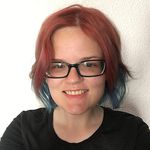
Phoenix Tawnyflower is a queer feminist jack of all art-related trades, but mainly fiction, theatre, and slam poetry. They were born in San Francisco and homeschooled in Virginia up until undergrad. Tawnyflower is a senior Linguistics major at Bryn Mawr College, having decided majoring in creative writing would take all the fun out of it and sticking to taking classes and attending the Chesapeake Writers' Conference two years in a row instead, and mostly writes about mental illness and queer identities. Online, they are heavily involved in intersectional activism amd politics, and in real life, in local and college theatre. Tawnyflower has been speaking Spanish since age 4 and telling stories even longer. They didn't intend to write a novel so heavily based on their own experience, but began to identify as trans partway through writing it. Tawnyflower has worked with authors such as Jonathan Friesen and Robert Bausch. Their current favorite author is Matthew J. Metzger, but they've taken inspiration from such diverse sources as Faulkner, Dickens, and Rowling. Tawnyflower has been published under their real name, Sally Little, with the Northern Virginia Community College newspaper NOVA Fortnightly and won both the Penguin Books Signet Essay Contest and the NOVA literary magazine contest in the play category in 2013.
Line By Lion Publications is an independent publisher using a traditional platform. At LBL, you get the best of both worlds: the hands -on attention and personal control of a small press, with the national attention of a large publisher. Line By Lion focuses on unique voices. Though our line is primarily speculative fiction, we are actively seeking children's books, historical fiction, romance, and mysteries.
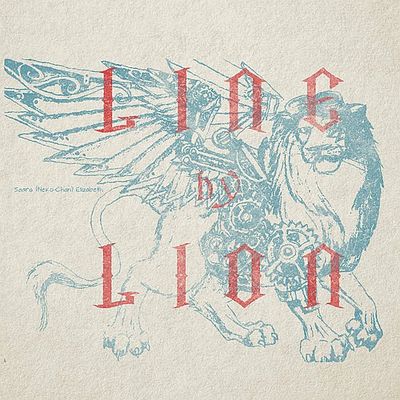
Agora Publishing is a Canada-based not-for-profit organization, founded in 1997 with the aim of making book publishing accessible to all writers across Canada and internationally.
We are the only hybrid book publisher which is also a cable TV show producer; newspaper publisher; social media marketer and search engine marketing organization.
Do you have a Twitter following of at least 5000?
We will interview eligible authors for 15 minutes for our cable TV show broadcast.
If your raw interview footage generates at least 1000 views within a four day period, we will air your interview on our cable TV show.
Contact us for more information.
Applications are due Saturday, May 29, 2021.
#authors #bookmarketing #writers #tv

250 copies • Completed manuscript.
Atlantic Publishing has been providing millions of readers information to jumpstart their careers, start businesses, manage employees, invest, plan for retirement, learn technologies, build relationships, and live rewarding, fulfilling lives. Our award-winning authors and publication staff strive to make our products the best and most up-to-date available. We go further than most publishers to get our customers the best products.
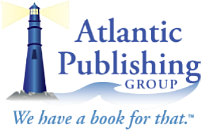
250 copies • Completed manuscript.
Boyle & Dalton was founded in 2014 and publishes works of fiction, non-fiction, and poetry. The world of publishing is changing, we're changing with it. Our founder Brad Pauquette, conceptualized a hybrid model that balances the financial and rights model of self-publishing with the quality controls and production excellence of a traditional publisher. Our designers and editors produce exceptional books that are distributed in both print and digital formats to all major retailers, including Amazon.com and BarnesandNoble.com. Boyle & Dalton carefully consider all submissions for publication, based on manuscript quality. We do not accept erotica or children's books.
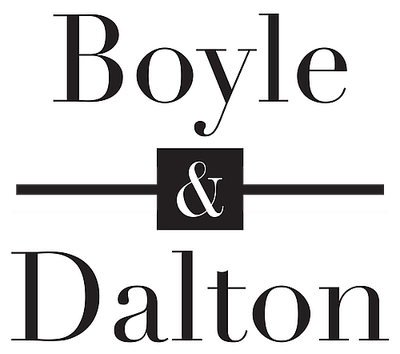
Looking for titles that teach, promote, and encourage understanding, tolerance, peace, environmental preservation, health, and wellness.
Brandylane is a small, independent press, founded in 1985, that publishes fiction, non-fiction, poetry, memoir, and children’s books. We publish under a traditional arrangement and also offer a cooperative track for emerging authors. We believe that books make a difference, that lives and the world are changed by the power of words and images, and that large publishing houses neglect a wealth of good writing. We are not looking for mainstream read-it-before self-help.
Under our cooperative arrangement, we invest a portion of the publishing costs and offer a stepped royalty structure from 30% to 60%--higher than the industry average. One distinguishing feature of our program is that our marketing effort includes a one-year launch, followed by two additional years of promotion through our social media, website, our seasonal genre, and subject matter email campaigns, and continuous support from our PR team.

250 copies • Partial manuscript.
Cranthorpe Millner operates a hybrid publishing model. This means, should an author pass our editors’ strict filtering system, we can offer different kinds of agreements depending on the author and the manuscript. With some authors, we work under a ‘traditional’ model, whereby we cover the full cost of publication and the author is offered industry-standard royalties (8-10%). To some authors, we offer what we call a partnership or contributory agreement, whereby the author is asked for a financial contribution so that we may share the risk and enter into a partnership together to publish the author’s book. In this case, the author receives around 60-75% royalties.
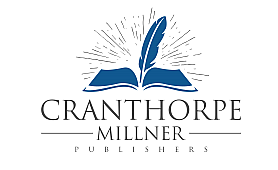
250 copies • Partial manuscript.
Hybrid Global Publishing is a full service Hybrid Publishing Company dedicated to helping authors, speakers, and entrepreneurs get their message out by writing and publishing a book. We offer developmental editing, publishing, distribution, and marketing services for independent authors who are interested in speaking on stage, becoming more visible in the media, and establishing more credibility. The team has a combined 80 years of experience in publishing and has held editorial, management and marketing positions at major publishing houses, including The Free Press, Crown, Random House, and Avon.
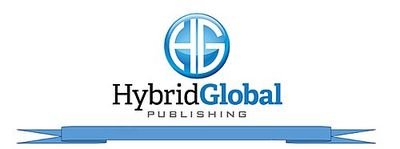
Mascot Books is a full-service hybrid publisher dedicated to helping authors at all stages of their publishing journey create a high-quality printed or digital book that matches their vision. With comprehensive editorial, design, marketing, production, and distribution services, our authors have the support of an experienced publishing team while still retaining one of the highest royalty percentages in the business.

The History
Prodigy Publishing Group was founded in 2009 and has been steadily publishing distinguishable trade paperback fiction since. Its flagship imprint Prodigy Gold Books is spearheading its journey with a fall 2017 line up that includes four novels by four authors sure to delight readers. Prodigy Gold Books is dedicated to publishing a variety of must-read books on a wide array of topics and genres.
The Mission
Our mission is to showcase established voices and to introduce emerging new ones—both fiction and nonfiction genres.

We Are The Hottest Start-Up In The Book Publishing Business. We'll Get You Published!
We Are Both A Self-Publishing Service Provider And A Hybrid Publisher (Through Our Sette Cuori Press™ Division). We Combine The Quality And Professionalism Of Service & Traditional Publishing While Disrupting The Market With Our Exclusive ARIT™ Program (Affordable Rapid Innovation Technique) That Dramatically Reduces The Cost And "Time-To-Market" Of Your Book. No More Ridiculously Expensive Quotes... No More Unfair Agreements... Contact Us Today!
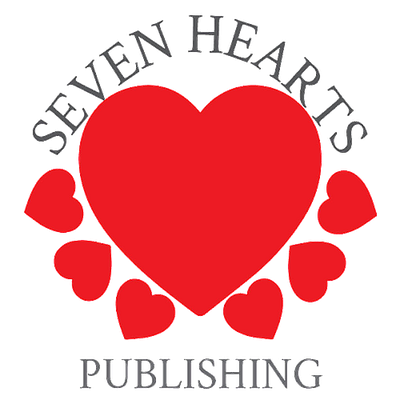
250 copies • Completed manuscript • Looking for novels that capture the arcing collision of expectation and sudden challenge.
Founded in 2015, Thea Press is an independent book publisher committed to helping nurture hidden stories and narratives to birth. We serve authors who are skilled observers and subverters of the status quo. Thea Press authors cut through what one expects to see in order to give a taste, sound, touch, and smell of the unexpected. We are midwives of the stories birthed not by the God of the mainstream whom we've been taught and sometimes forced to know, but by the Goddess who reveals herself to those whose senses are keen and hearts are open.
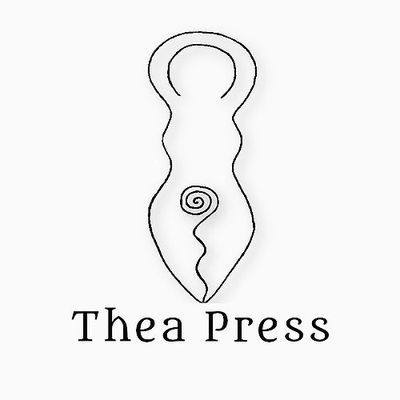
Dear Author,
You worked hard to write your manuscript, and you know that expert assistance is needed to ready it for the market. But perhaps you didn’t realize that working with a publisher is no longer necessary—especially publishers who charge fees to produce your book upfront and "share" more of your revenue whenever a book is sold.
1106 Design is an author services company that has served over 4,000 authors since 2001. We offer all the editorial and design services you’d expect from a publisher, transforming your manuscript into a polished book. But here's the difference: we help you secure print-on-demand printing and worldwide distribution in YOUR name. This means you'll earn several dollars more for every book sold instead of a meager “royalty” and never lose control of your book or your book files.
We understand that your book is not just a passion project but also a potential source of income. No two books or authors are alike. That's why we'll customize a package of services tailored to your needs at affordable prices, starting at $5,555. And here's the best part: after this one-time investment, every penny of revenue from book sales is deposited directly to your bank account, never to ours first.
If this sounds like a better way to publish your book, I invite you to browse our services, design samples, no-surprises pricing, outstanding customer reviews, and educational articles at https://1106design.com. You can download a free PDF of my book, "Publish Like the Pros: A Brief Guide to Quality Self-Publishing and an Insider's Look at a Misunderstood Industry," and request a free, no-obligation consultation.
1106 Design is rated A+ by the Better Business Bureau. We are a “Highly Recommended Expert” at IngramSpark.com and rated "Excellent" at Alli, The Alliance for Independent Authors, at SelfPublishingAdvice.org. Alli's "watchdog list" of the best and worst publishing services companies is an invaluable resource.
How can we serve you today?
Sincerely,
Michele DeFilippo, owner

250 copies • Partial manuscript.
Atmosphere Press is an independent publisher dedicated to author rights. We publish in all genres and have an exceptional editorial, design, and promotional staff. We stand for Honesty, Transparency, Professionalism, and Kindness. We want our authors and their readers to be blown away when they first hold that book in their hands. It needs to look good inside and out, and feel good to the touch. And, of course, the words need to be top-notch, and our editors are devoted to making that the case.
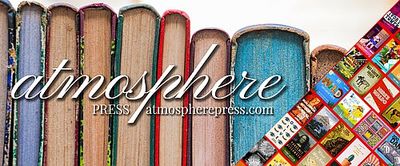
250 copies • Partial manuscript.
Authors Unite helps you become a profitable author and make an impact. We take care of printing and distribution through major online retailers, developmental editing, and proofreading with unlimited revisions. We take care of the entire process for you from book cover design all the way to set up your backend so all your book royalties go straight to your bank account. We can also help with ghostwriting if you prefer not to have to figure out all the steps on how to write a book yourself.
With our book marketing services, you don’t need to worry about figuring out all the steps on how to market a book or how to become a bestselling author. We’ve helped hundreds of authors become bestselling authors on Amazon, USA Today, and The Wall Street Journal. We take care of the entire book launch process for you to help you sell thousands of copies of your book and become a bestselling author.
View case studies here: https://authorsunite.com

100 copies • Partial manuscript.
Bookmobile provides book printing, graphic design, and other resources to support book publishers in an ever-changing environment. Superior quality, excellent customer service, flexibility, and timely turnarounds have attracted nearly 1,000 satisfied clients to Bookmobile, including trade houses, university presses, independent publishers, museums, galleries, artists, and more. In addition, we manage eBook conversions and produce galleys, and regularly provide short-run reprints of 750 copies or fewer for major publishers such as Graywolf Press.

100 copies • Completed manuscript.
Happy Self Publishing has helped 500+ authors to get their books self-published, hit the #1 position in the Amazon bestseller charts, and also establish their author website & brand to grow their business. And the best thing is, we do all this without taking away your rights and royalties. Let's schedule a call to discuss the next steps in your book project: www.meetme.so/jyotsnaramachandran
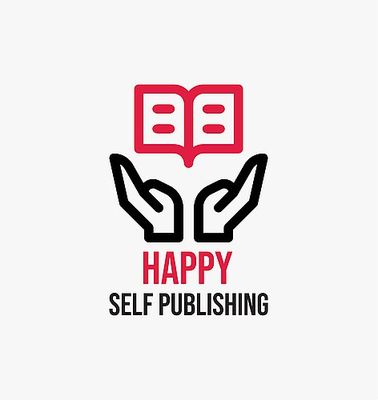
Ingram is a rather large company with several different divisions and supplies books to bookstores and libraries in over 200 countries around the world. Ingram also has a print on demand digital printing company, Lightning Source. IngramSpark is the platform that combines those two services together. At IngramSpark, we work with authors and independent publishers to print their books for orders they need (no minimum order) and we have a way to list the books as available for sale to all of Ingram’s 39,000+ customers- distributors, bookstores, retail outlets, libraries, etc., so you never miss a sale. You would provide us with the print-ready digital files (one for the cover and one for the interior) and we print the books as they are sold through our distribution partner’s websites. We pay you for those sales approximately 90 days later. The compensation you earn is based on the retail price you set, minus the wholesale discount you offer our distribution partners, minus the print cost.

Get your ebooks into the biggest stores and keep the 100% of your royalties. Amazon, Apple iBooks, Google Play, Kobo, Nook by Barnes & Noble and more.
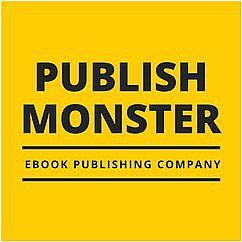
ShieldCrest are book publishers based in the UK who fill that vital gap for talented authors where mainstream publishers are unwilling to give them that chance. We strive for excellence and invest in our authors and are listed in FreeIndex as the number one independent publisher in the UK for price quality and service rated author satisfaction. We publish books of all genres including; fiction, historical, biographies and children's books.
ShieldCrest publishing continues to grow rapidly with satisfied authors throughout the UK and overseas. Our range of products includes paperbacks, hardbacks and digitised e-books in all formats used globally in the myriad of e-readers.
In addition to the above, ShieldCrest provides a complete range of services including book design and layout, illustrations, proof reading and editing. For marketing we offer author web page, press releases, social media marketing packages and many other support services to help both first time and experienced authors get their books into the market quickly and maximise on the opportunities available.
These services enable us to guide our authors through the process as we transform their manuscript into a professional book, which can take its place with pride next to any famous author's book of the same genre.
The staff at ShieldCrest have many years experience in the book industry and this wealth of experience is put at the disposal of our authors.
Our clients include established authors such as Diane Marshall who has been acclaimed as the best writing talent to come from Scotland for years by The Scotsman newspaper, and Prof Donald Longmore OBE, who performed the first heart transplant in the UK and has sold thousands of medical books used by students throughout the world. We also recently released "Martin Foran-The Forgotten Man" by J.R. Stephenson, which features fraud within the police, abuse within the prison service and injustices in the courts and has been featured in the press and on TV.
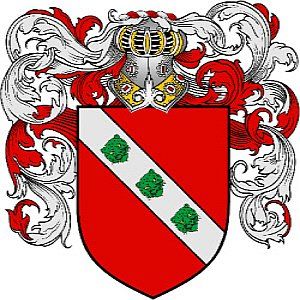
I take the free Blue Bus to Bryn Mawr the next day to shop Intro Bio. The three sessions are back-to-back. The 9am class is on the physiology of feeding, which sounds kind of interesting and kind of gross, and I decide halfway through that having to get up at the crack of dawn to catch the bus for a 9am class outweighs my interest. The 10am class is on invasive species, and much more promising. I decide to stay for the 11am just in case it’s even better, just as long as I’m over here. Before it begins, a short perky blonde girl sits next to me.
“Hi!” she says. “I’m Eloise. Ella. Who are you?”
“I’m Leandra,” I answer.
“Cool. She pronouns?”
My brain stutters on that, restarts the question to see if it makes more sense the second time, decides it doesn’t, and comes out with, “What?”
“Do you use she/her pronouns?”
“Yes,” I answer—it’s the simple truth, and conveys nothing of the confusion—and what the hell, joy—flooding my lungs, most of which I can’t even put into words. Jimena tells me enough that I look like a boy, but I don’t honestly look enough like a boy that she would need to ask, would she? I mean, I have boobs. And a girly name. Ella appears to be satisfied with the answer, though, and carries on.
“What sort of music do you listen to? I love the Backstreet Boys. I know, I know, they haven’t been really big since the ‘90s, but their vocals, you know they sang a capella a lot, which was just amazing, and so many artists these days rely on a sound bite and what the computers can do, I can’t stand modern pop, it just seems so faked all the time, you know? I always have the radio on oldies, but of course I can’t set the radio at work, and it’s always on modern pop, usually from a few years back so it’s not the stuff you’re totally sick of at least, I hear the preppers listen to a station that only plays the top like five hits and the rest is talk show, I feel so sorry for them, and I’m sorry, I’m not letting you talk.”
“Alternative, mostly,” I answer the earlier question, deciding it’s not worth it to ask what a prepper is just yet. “Anberlin is my favorite band.”
“Why?”
It isn’t disbelief. It isn’t even polite small talk. She’s turned to face me completely, though we’re at a lab table, propped her elbows on the table and nestled her chin in her hands. She looks about twelve in that position, though that might be the pigtails and the overall shorts with the purple T-shirt.
“I like what they can do with guitar,” I begin, “but mostly it’s the lyrics.” Most people let me stop there and say something else about their music or tell me if I like guitar I should listen to Jimi Hendrix (which I have), but Ella just cocks her head at me. “They’re full of really interesting, unusual phrases that can mean some pretty deep things if you listen to them carefully, but you’re never a hundred percent sure what they do mean.”
“Like what?”
“Like, um, ‘it’s not that we don’t talk, it’s that no one really listens and honesty fades.’”
“Ooh.”
“And, ‘it’s alarming how loud the silence screams no warning,’” I add, warming to the sudden attention.
“That is seriously the best,” says Ella. The professor starts to talk just then—this section is apparently on the evolution of skin. Bryn Mawr has some super odd classes. We don’t talk through the rest of the class (Ella pays as rapt attention to the professor as she did to me), but when it ends, she turns back to me and goes,
“You wanna grab lunch with my people?”
I am kind of hungry. And my OneCard gets me into Bryn Mawr’s dining halls too. “All right.”
The main dining hall is about as far from the science building as it gets on this campus, but it’s still only a fifteen-minute walk. Ella continues chattering to me.
“Are you into sci-fi/fantasy at all?”
“Only kind of superficially,” I tell her. “Harry Potter. Marvel movies. Nothing really nerdy.”
“Aw. Oh well. Not like everyone at the Doublestar table is actually in Doublestar anyway.”
“Doublestar?”
“Our sci-fi/fantasy club. It’s awesome, it’s really more of a philosophy club that uses nerdy stuff from evidence. There’s nearly always somebody at the table, so you don’t have to look for someplace to sit.”
“Wait, your club has its own table? Not in the dining hall?”
“Yeah, in the dining hall!” She laughs. “It’s not official, of course, but if you tell someone who’s Doublestar or friends with Doublestar people that you’re sitting at the Doublestar table, they’ll know what you’re talking about. Our president is Fearless Leader, and our VP is Lackey. It’s an inherited position. Fearless Leader Hells her successor. Oh, do you know about Hell Week yet?”
“I go to Haverford,” I say, wondering suddenly if she doesn’t know that. She doesn’t.
“Omigosh, you go to Haverford? I had no idea. I figured you were a new froshling. That sucks. Hell Week is awesome.”
I am even more confused than before at her remark about pronouns. Ryan’s voice comes back to me. Bryn Mawr is all-girl. But she tells me a little about Hell Week, which sounds like an elaborate system of dares, and next thing we’re swiping our OneCards at the checker desk at Erdman. Ella leads me toward a table near the back. It’s got quite an assortment of characters. There are Haverford students, since there’s at least one boy, and I’m relieved. The dude has slicked hair, turquoise glasses and a feather boa. Gay, I’m guessing. There’s someone who I think is a girl, with a green streak in brunette hair and eyeliner to match, plus a sequined shirt. There’s also a couple of way less striking-looking girls, and someone else, maybe Native American, who might be a girl, wearing a blouse and dark hair in a messy ponytail, sitting several seats down, so I can’t tell if she (?) is with the rest of the group.
“Everybody, this is Leandra, she/her pronouns. Leandra, this is not everybody!” says Ella helpfully, dropping her stuff by a chair. The two girls, the dude, and the person with the streak all smile and say hello. I wave and set my backpack by the chair next to Ella and follow her to the food.
I quickly lose track of Ella, who knows exactly what she wants and where it is, and take my time examining the salad bar, the hot line, and the soup ‘n’ sandwich bar. I take a bowl of minestrone, head back to the table, and tuck in. It’s pretty good for dining hall food.
“So, how many of these people are Haverford?” I ask, figuring that might help me work out some of the sexes.
“None,” says Ella, giving me a weird look. “You’re the only one.”
Wait, what?
“But…” I lower my voice. “That…person, in the boa, looks like a dude.” Ella’s expression goes cold. What did I do wrong?
“Introductions!” she says, a little loudly. “Whitney. He/him pronouns.” Boa dude flaps his hand at me. “Chrys, with a Y. Ze/hir pronouns.”
See here pronouns what?
She rattles off another couple names, which I immediately forget. The person with the ponytail doesn’t get an introduction, so I guess that one’s not part of the group. “All Bryn Mawr students.”
“I thought Bryn Mawr was all-female,” I say, completely stuck. Now that I really look, Whitney and Chrys don’t have visible Adam’s apples—though there’s no sign of breasts, either.
“Officially,” says Chrys, and Ella’s not the only one who suddenly looks frosty. “But it does have rather a large transgender population. Do you have a problem with that?”
“I don’t know what that is,” I admit quietly. The expressions become more wary now than cold.
“We, Whitney and I,” says Chrys, “although our birth certificates say we’re female, don’t consider ourselves to be girls. Simply put…” Chrys—what’s that pronoun again?—stops and looks a little sheepish. “What’s a way to simply put it?”
“Deep down inside, we don’t feel like girls,” says Whitney. “I feel like a boy since I was a little kid and didn’t understand why people kept calling me a girl.”
“Are you a lesbian?” I ask. Everyone cringes except Whitney, who seems to be prepared for the question.
“Naw, I’m a gay man,” replies Whitney. “I like guys and I am one. Some lesbians like dressing in button-downs and wearing their hair short, sure—hell, so do lots of girls—but as far as I can tell they don’t hate their boobs and crave a penis. I do. And it’s not about sex, I just feel wrong all the time without one. And I hate it when people use ‘girl’ or ‘she’ for me, it just feels so wrong, like they’re talking about someone else.”
“How did you go your entire life without knowing this?” bursts out Ella, who can apparently keep silent no longer.
“I don’t know,” I admit.
“’S okay,” says Whitney. “Just use ‘he’ for me and ‘ze’ for Chrys and don’t tell us we’re confused or going to hell or disgusting, and we’ll be good, yeah?”
I nod, because it would be rude as hell to say any of that, regardless of what I feel, and I have no idea what I feel, beyond that I think as soon as I let myself process, it’s going to be terrifying.
Whitney changes the subject, to what I have no idea. I pretend to listen and finish my meal relatively quickly. I make my excuses about needing to catch the bus (which is true, in the sense that I’ll miss it if I don’t leave now, more than in the sense that I actually need to be on this particular bus) and bolt. Thank goodness, lab doesn’t start until next week, or I’d be stuck here until late afternoon. The bus seems to take forever, purposely landing the reds at every intersection and waiting an extra second to pull away every time it turns green. When it pulls up by Stokes, I’m first off, making a beeline towards Barclay. Antigony isn’t home, and I thank anyone listening. I need to be alone. I shut the door and the security of solitude washes over me. On its heels follows sheer terror. I lock the door with jittery hands, figuring Antigony has a key, drop my backpack on the floor, toe off my shoes and climb into bed.
My breath pulls in—and stops, holding there for precious seconds before I force it out again. Whitney’s voice is still on repeat in my head. Deep down inside, we don’t feel like girls. A couple normal breaths, and the hitch happens again. I can feel my heartbeat, which is way too fast to be accounted for by the walk. They don’t hate their boobs. I do. I burrow under the covers, although it’s early September in Pennsylvania and still breathtakingly hot, and feel marginally better. I hate it when people use ‘girl’ or ‘she’ for me, it just feels so wrong, like they’re talking about someone else. My breath seizes up completely for long seconds, and I can feel a whimper trying to escape my throat. Yes, I think, I hate it when people use girl, she, and more, I hate it when people use ella, chica, even Jimena’s querida, as affectionately as it’s meant, is painful. I want Jimena, and I don’t want Jimena, I want the comfort, but I absolutely cannot share this with her. Yes, I hate my boobs. I thought it was the inconvenience, the way I had to be careful what shirts I bought after that, the irritation of bras, the way boys started staring. But I think about it, I imagine being free of them, having a flat chest like a boy’s, and I’m gripped with the urge to take them in hand, dig my nails into them, try to rip them off, and what’s worst is that isn’t a new feeling. My shirt is suddenly suffocating, and I pull it off, unclasp my bra and throw them both on the floor. I run my hands over the bare bulges in my chest and I am filled with disgust, old disgust, my hands remind me, as they slide over raised ridges that I know are fading to pink by now, and it’s not that they’re breasts. I like women, as I told Ryan and Gary, and that includes their breasts. It’s that they’re on me. Deep down inside, as Whitney said, do I feel like a girl?
My bones echo a resounding No! and I start to cry.
But in all the excitement, I’ve forgotten, somehow, about my Spanish, forgotten about it until Saturday and Robotics club learning a whole new programming language called Logo while Ryan solders, and Henriette comes over.
“Looking good!” she says of the robot, and then, in a lower voice to me, “¿Cómo estás? ¿Hay problemas con su género? ¿Sus pronombres?”
“Mierda,” I mutter to myself. Pronouns. No gender-neutral pronouns. “I switched to they/them yesterday,” I tell her. She blinks.
“Hard to talk in Spanish, then.”
“Mm-hm.” I ponder that for a few seconds, and decide it isn’t a problem to solve while I still haven’t actually answered her question.
“Otherwise, estoy contento.”
“¿Contento?” she questions, and this time I hear the ending. Not as bad as ‘contenta’, but still.
“Mierda, mierda, mierda,” I hiss, setting down the motor I’m working with so I don’t crush it and digging my nails into my palms. All this time, all this trying to find something to call myself, when I hadn’t even really wanted to go on some self-discovery journey anyway, and the only thing that’s felt close to right is incompatible with my language.
“What’s up?” asks Ryan softly, apparently lost.
“They just remembered that Spanish doesn’t have gender-neutral language,” Henriette explains, putting an arm around me. I lean into her gratefully.
“At least you aren’t a native speaker, right?” asks Ryan. He’s not being mean, he’s honestly trying to help, but it’s not something I haven’t thought a million times before. Spanish is not my heritage, not my birthright.
“No, I’m not Latino,” I spit. “Latino? Latina?” There’s no word even for what I’m not.
“Latinx,” offers Henriette. It’s a small comfort.
“Not Latinx. Or Spanish. No.”
“But you’ve spoken it forever, so it might as well be,” says Ryan, and maybe he gets it more than I thought.
“Might as well be,” I agree. “Been my language since kindergarten. Been the foundation of my best friendship, my college choice, my career. If I didn’t speak Spanish, I’d have a completely different life. ¿Por qué?” I whisper, and Henriette hugs me harder. Tentatively, Ryan joins in.
“What’s up?” Gary has noticed us from across the room and abandoned his teammates. He crouches on Ryan’s other side.
“They’re having a language/gender crisis thing,” Ryan explains, letting go.
“They?”
Ryan looks at me. “Leo?”
I wave a hand about, trying to convey the depth of my not knowing.
“Maybe just Lee for now?”
Ryan nods decisively. “Lee.” He turns back to Gary, as if to say “That settles it,” and I search their faces. Their gazes are too focused, too soft for friends. I’m suddenly sure Nadie was right.
Gary catches me watching and meets my eyes. “So…what are you, then?” he asks, and Henriette draws in a breath beside me.
“Let it go, willya?” says Ryan, to my surprise. Gary looks almost betrayed.
“What? It’s weird,” he starts to say, but Ryan stands and grabs his hand, pulling him some distance away before dropping it, stuffing his own hands into his pockets, and staring firmly at a spot on the floor behind Gary’s right shoe. They’re not quite far enough away for me to not hear Ryan’s next words.
“Yeah, it is weird, but you didn’t see Lee’s face, okay? I don’t understand it either, but it’s important to them.” He meets Gary’s eyes on the last word, and something seems to pass between them.
“You’re the weird ones,” mutters Henriette.
“Nah, they’re just into each other and too scared to do anything about it,” I answer quietly.
“Seriously?” says Henriette.
“You can’t tell?”
“I am totally clueless about allosexuals,” says Henriette, and after a second, adds, “and alloromantics.”
“All-of-the-sexuals?” I ask, confused, and she starts to laugh.
“Close enough. That’s roughly what it means.”
Huh. Another thing I don’t know about. It’s less scary than at the beginning of the year. I’m sure I’ll get the lowdown soon enough.
I leave Robotics Club somewhat surer about my friend group and less so about what I’m going to call myself or what the hell I’m going to tell Jimena.
Publishizer has finally made some things about how it works clear, and I have a more attainable goal than 500.
If I can get just …
Love you, babe! XOXO
I'm excited to read this! Thanks for doing this!
You're a good one.
This looks really good! I'm so excited to read it!
This seems like a really interesting project!
$10
8 readers
A digital copy of Binary Talk.
Includes:
$18
4 readers
Print copy of Binary Talk made out to you and signed.
Includes:
$27
2 readers
Signed copy of Binary Talk and a bracelet in the sexuality flag colors of your choice. Check them out at http://phoenixtawnyflower.blogspot.com/2014/06/sexuality-flag-jewelry.html#.
Includes:
$50
1 reader
Your name will appear in the acknowledgements and you'll get a signed copy.
Includes:
on Jan. 19, 2017, 3:39 a.m.
Happy to help a fellow Mawrtyr! '78